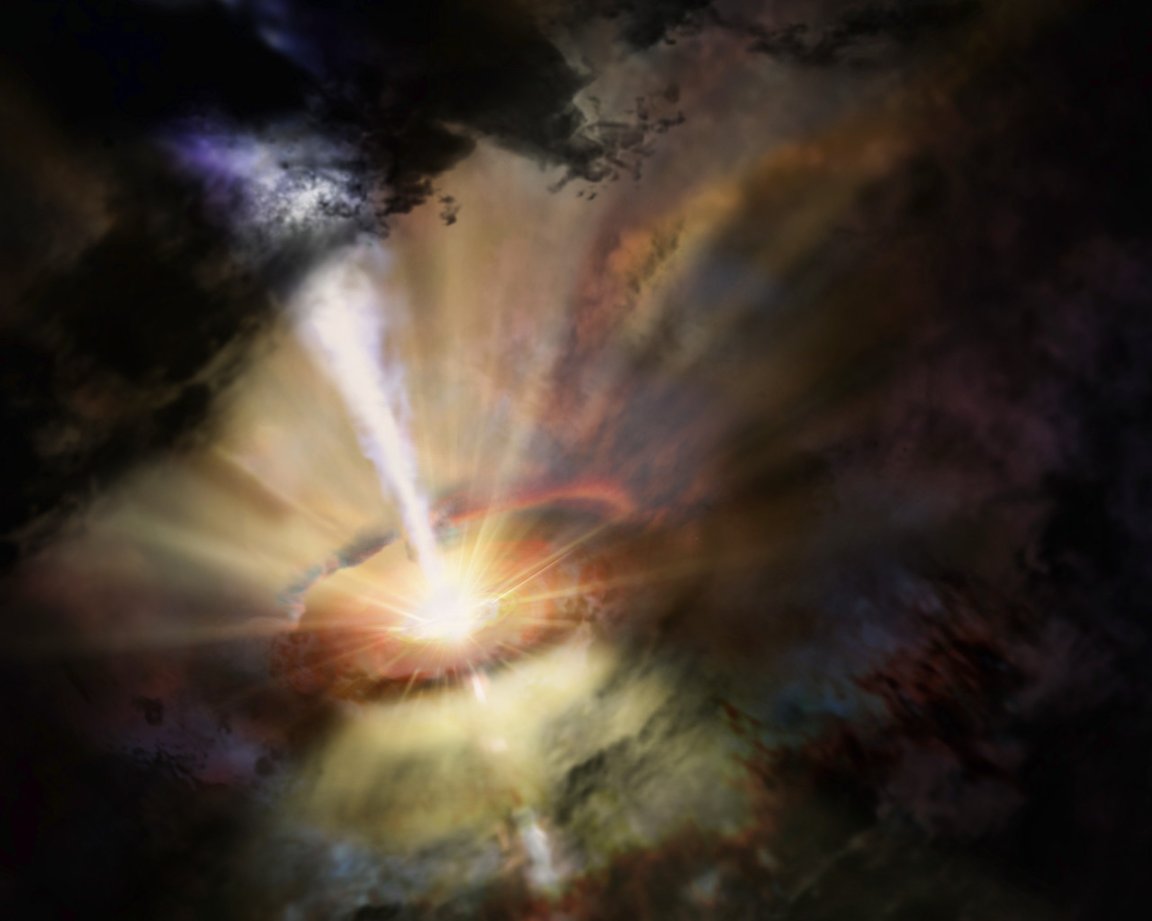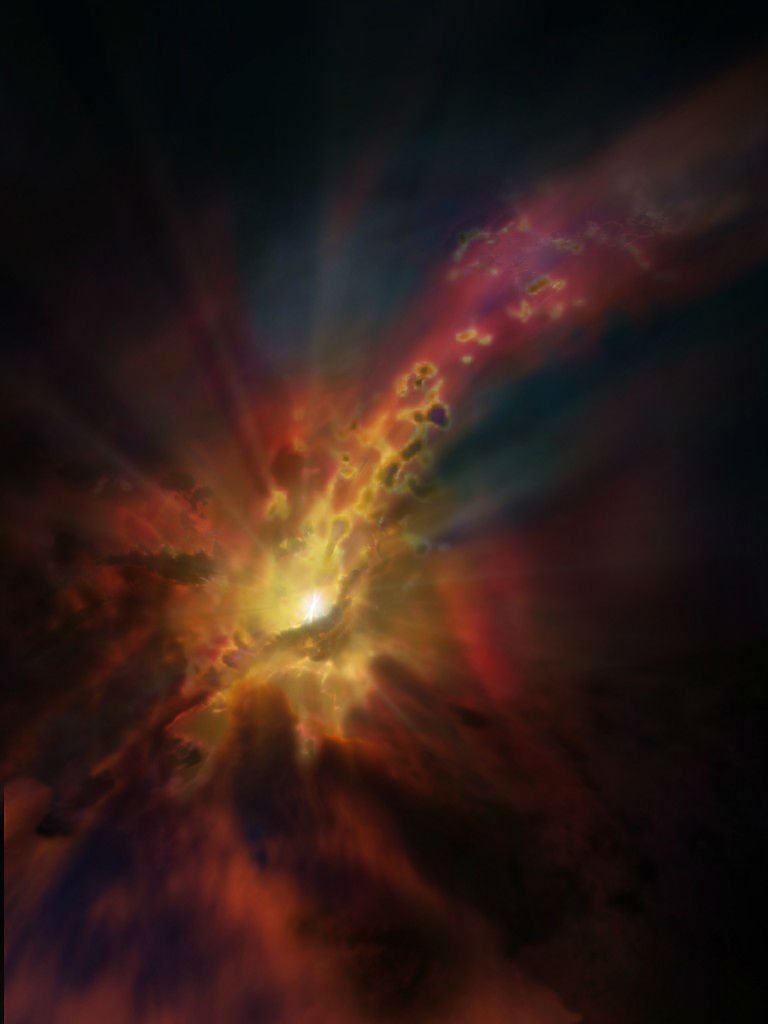
Not a Picky Eater
Black holes have been, and still are, one of the universe’s biggest enigmas. Perceptions over what they are and what they eat keep flipping from one side to the other. After decades of declaring them bald, next thing we know, they have hair.
It was also previously thought that supermassive black holes only consume hot ionized gases. And now, for the first time ever, astronomers caught one red-handed, feeding on cold, dense clouds.
“Although it has been a major theoretical prediction in recent years, this is one of the first unambiguous pieces of observational evidence for a chaotic, cold ‘rain’ feeding a supermassive black hole,” said Yale astronomer Grant Tremblay, who lead the study.
Will the Black Hole Finish its “Dessert”?

Megan Urry, co-author of the study, says while she is not certain whether all of these cold gas clouds will be consumed by the black hole, the observation, captured by the Atacama Large Millimeter/submillimeter Array (ALMA) in Chile, is an important find.
“We can’t know whether all or only part of this ‘meal’ of cold gas will ultimately fall into the black hole, but the ALMA data spectacularly highlights the importance of this kind of cold accretion,” she says.
The cold dense clouds are condensing around the supermassive black hole, and this cold rain is therefore feeding it, making the already massive black hole even bigger.
Co-author Louise Edwards, says this “a real step forward” in further understanding how the active galactic nuclei (AGN), or the luminous centers of galaxies, interact with the rest of the galaxy.